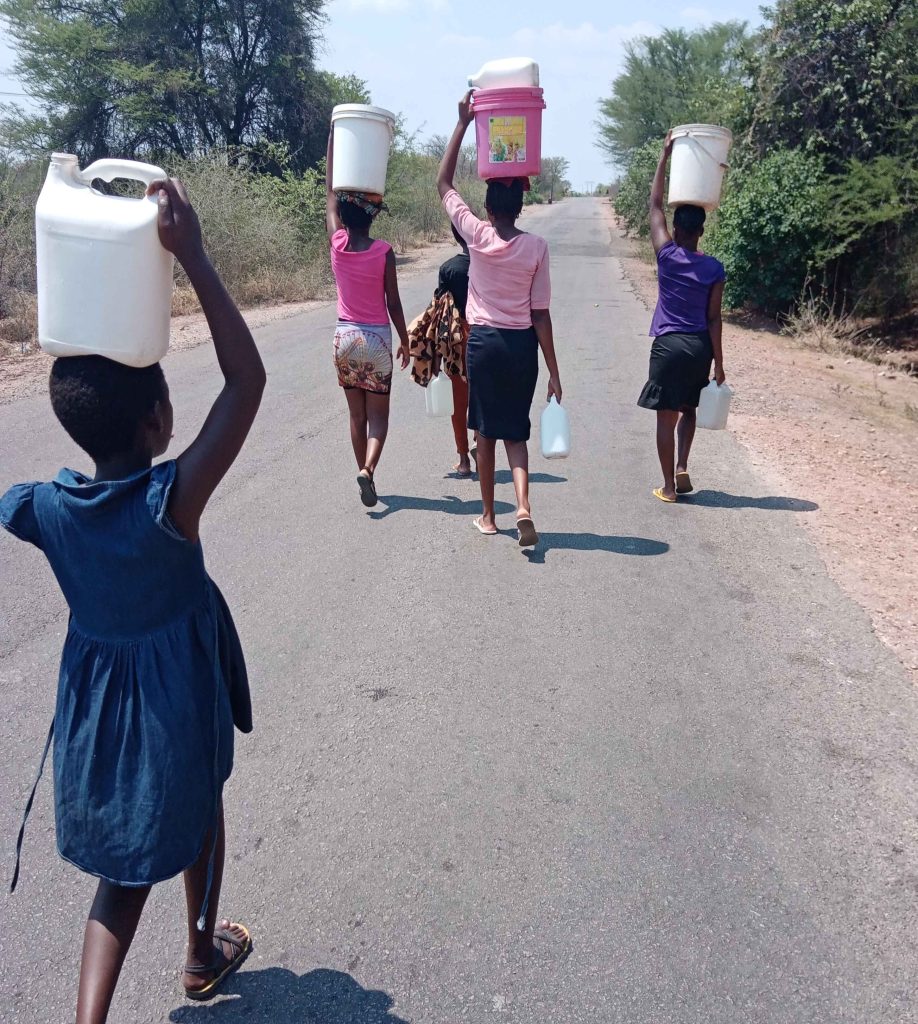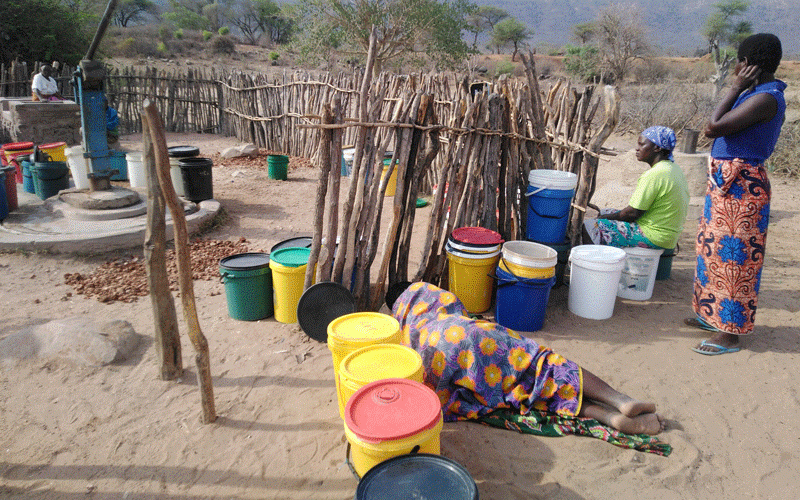“When the floods came, they swept away my grandmother within seconds. She was gone, and we were left homeless, managing to save the little we had,” sighs Tubone* (15) as she recounts her experience of the 2020 flood caused by Cyclone Idai.
Homesteads in low-lying Nsungwale were washed away when the Chininga river burst its banks, leaving a trail of destruction. This forced hundreds of families to relocate to higher ground, where they spent months living in tents at a camp. The government pushed to construct houses for those affected at a new site less prone to flooding.
Tubone’s life was forever changed by this calamity. She had aspired to be a teacher, but poverty and repetitive climate catastrophes dashed her dreams. She was unable to continue her education, severely diminishing her future prospects.
“I was just 11 at the time of the flood and was doing well in my studies, but all that changed. My mother abandoned me when I was a baby, so I was raised by my grandmother,” her words reverberated with loss as the flood survivor relived the devastation of the unrestrained rains that battered her quiet community.
Tubone is just one of the 317 victims of the catastrophic 2020 floods who lost their lives, homes, and livelihoods. They reflect a harsh reality: climate disasters disproportionately impact women and girls due to their pre-existing socio-economic vulnerabilities.
Climate change’s greatest victims are children, women, and girls. As climate disasters worsen, women and girls are left more vulnerable than ever. Women often face higher risks and greater burdens from the impacts of climate change, especially in situations of poverty, due to existing roles, responsibilities, and cultural norms. For instance, in many societies, women are responsible for household chores, and care for the young and elderly.

During periods of drought and erratic rainfall, women, as agricultural workers and primary laborers, work harder to secure income and resources for their families. This puts added pressure on girls, who often have to drop out of school to help their mothers manage the increased burden. Women bear a disproportionate responsibility for securing food, and water for their families.
“Our borehole ran dry in early October, and we have been forced to walk some 10 kilometers to access the next water point three villages away. To make matters worse, the heat waves have been unbearable, and with the ensuing drought, my two daughters have had to leave school to help out, especially now that we get water from afar off.”
Ellen Mudimba from Pashu area
Rural Zimbabwean women are heavily engaged in agricultural activities, including crop cultivation and livestock rearing. Climate change, including extreme weather events like droughts and floods, disrupts agricultural productivity and reduces crop yields. This directly affects women’s access to food, as well as their income and economic stability.
Children like Tubone can experience mental health impacts from such natural disasters while also having to contend with other changes, such as having to move due to climate threats. Young children depend on adults for their safety and well-being.
The UN estimates that 80% of the people displaced by climate change are women. Devastating floods alone can have a serious effect on access to healthcare, resulting in home births. Girls and women are often left without access to basic menstrual hygiene products and toilets to manage their period.
Buwalo Matilikilo Trust (BMT) director, Anna Mandizha-Ncube, says child marriages increase as gender-based violence exacerbates in the wake of the climate crisis.
“Women and girls bear the brunt of climate change. Girls are increasingly being traded off into child marriages in return for food amidst climate-induced starvation,” Matilikilo says. “Climate change goes beyond just being an environmental phenomenon; it speaks to a social injustice crisis that aggravates patriarchal injustices in communities. It is for this reason that we continue to advocate for climate action that goes beyond rhetoric and tokenism.”
Changing rainfall patterns, culminating in prolonged and frequent droughts and heat spells, have led to the drying up of many water sources in a district with very few boreholes, forcing women and girls to drop out of school and travel kilometers on foot every day for mere liters of fresh water.
Ncube says the majority of climate change victims are extremely poor, have limited access to climate information, and lack the resources and capacity to rebuild their lives after climate-related disasters.
The impacts of climate change are not distributed equally, with those who have done the least to cause it suffering the most from its effects, and with the least capacity to deal with its consequences.
Sithembinkosi Ndlovu, chairperson of the Women’s Coalition of Zimbabwe (WCoZ) Hwange chapter, asserts that climate justice is required to address challenges faced by women and girls. She argues that women often have less access to resources and decision-making power, making it harder for them to adapt to the impacts of climate change.
“Climate justice seeks to address the unequal distribution of the burdens between those responsible for climate change and those at the receiving end, in this case, poor countries and communities. It demands accountability on the part of those responsible for emissions that led to global warming and the fair treatment of all people and communities in the face of climate change. Climate financing should be extended to poor communities and women, especially, so they can venture into income-generating projects to mitigate the effects.”
Scientists argue that Africa is the most vulnerable region to climate change, though it contributes less than 5% of global greenhouse gas emissions, according to the United Nations. The UN Conference of Parties (COP27) last year in Egypt established a fund to compensate vulnerable nations for ‘loss and damage’ from climate-induced disasters.
This followed years of research indicating that African women and children should be prioritized in adaptation efforts to cope with climate change. The studies indicate that women and children are more susceptible and have less capacity to adapt due to a lack of access to wealth, healthcare, and community-level participation, as well as male household decision-making power and the overwhelming burden of household activities.
Further evidence shows they contribute more than men to adaptation efforts within the household to recurrent drought and the variability of weather conditions.
On the international scene, it remains to be seen whether wealthy countries will honor their climate pledges, provide necessary financing, address loss and damage from the climate emergency, and introduce a carbon trading mechanism that allows for quick results. For a woman or girl in rural Binga, a victim of climate change, she has to endure the impacts of a phenomenon about which she knows nothing. All she knows is that the world is falling apart for her.
Editor’s note: Names marked with an asterisk (*) have been altered to safeguard the anonymity of the victims.

